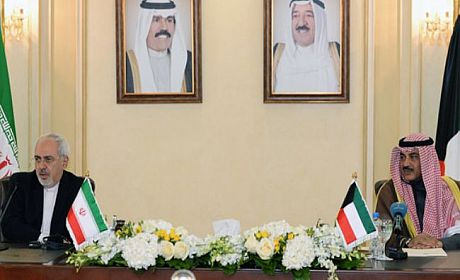Tensions Can Be Resolved in Calm Atmosphere

With regard to the challenges which were created between Iran and Kuwait and certain measures taken by Kuwaiti institutions in eliminating the labor force, cancelling Iranians’ residencies and putting sanctions on Iranian products, can relations between Iran and Kuwait be expanded?
It seems that such measures are periodical and superficial. At the same time, they can be caused by a regional development, another country’s pressure and crises which happen in other parts such as Egypt. But it seems impossible that such measures would be initiated by the general policies of Kuwait. Iranians have been living in Kuwait for decades and have played significant roles in the construction of this country. They have even played an important role in defending this country against Saddam. Thus, it would seem impossible that this country would forget all of its positive historical and social backgrounds and pursue the policy of harming the Iranians who reside in Kuwait. The other point is that when the world’s atmosphere changes and Iran is placed in a new position, the countries of the region would feel the new atmosphere and attempt to follow more constructive and expanded policies with Iran.
The other issue is the difference over the continental shelf between Iran and Kuwait about which Kuwait has always reacted and stated that this issue is still the point of difference between the two countries. Is there hope for the resolution of this matter?
Countries are sensitive towards the division of their borders particularly the water borders which have sources of energy. This issue is more a legal and technological one. Determination of the water borders, regional laws and parliamentary laws are all involved in this matter. That is why in a calm and healthy atmosphere and with the view of impacting this region, countries must attempt to solve this problem.
Kuwait enjoys a special status among the Arab states. Could the closeness of relations between Iran and Kuwait impact the reactions and statements made by the Persian Gulf Cooperation Council with regard to Iran?
Kuwait is a country with an appropriate democracy and the special combination of its population, all of which are defined in the history of its relations with Iran and other countries of the region. Nevertheless, based on its weight in the region, Kuwait can be effective in this council according to its political weight.
The Shiites of this country are mainly from Iran, Iraq, Saudi Arabia, and Bahrain. Based on the latest consensus in Kuwait which was performed in 2001, the Shiites form 30% of Kuwait’s population whereas the Shiites themselves believe that the Shiites form at least 40% of the population. Could the Shiite population of Kuwait lead to a new definition in close relations between Iran and Kuwait?
One of the proper population compositions in the region which can present peaceful relations of life are the Shiites in Kuwait. Of course if this atmosphere is somehow damaged by the radical groups, it would have negative impacts which would affect all groups including the Shiites. Due to the presence of the Shiites in different social bases of Kuwaiti society and the Shiites’ resistance against the attack of Saudi tribes and Saddam’s attack, the rulers of this country have close relations with the Shiites.
Another issue is the strategic status of Kuwait in energy and economic areas. Could Iran consider Kuwait as its strategic economic partner to replace the UAE?
Every country has its own position and status. During the past four decades, Kuwait was able to play the role that now the UAE plays in its trade relations with Iran. But right now it does not play such a role and the UAE is Iran’s trade partner. In the end, Kuwait could perhaps participate better in the investment and enforcement of certain projects.
How could Kuwait, as an effective Arab state, facilitate Iran’s relations with other Arab countries and support Iran’s negotiation on its nuclear activities?
Right now it cannot be said that Kuwait could directly impact this issue. But since the negotiators play a direct role, Kuwait and other countries could only create positive or negative atmospheres but they cannot play a role in the progress of negotiations especially the nuclear negotiations.

